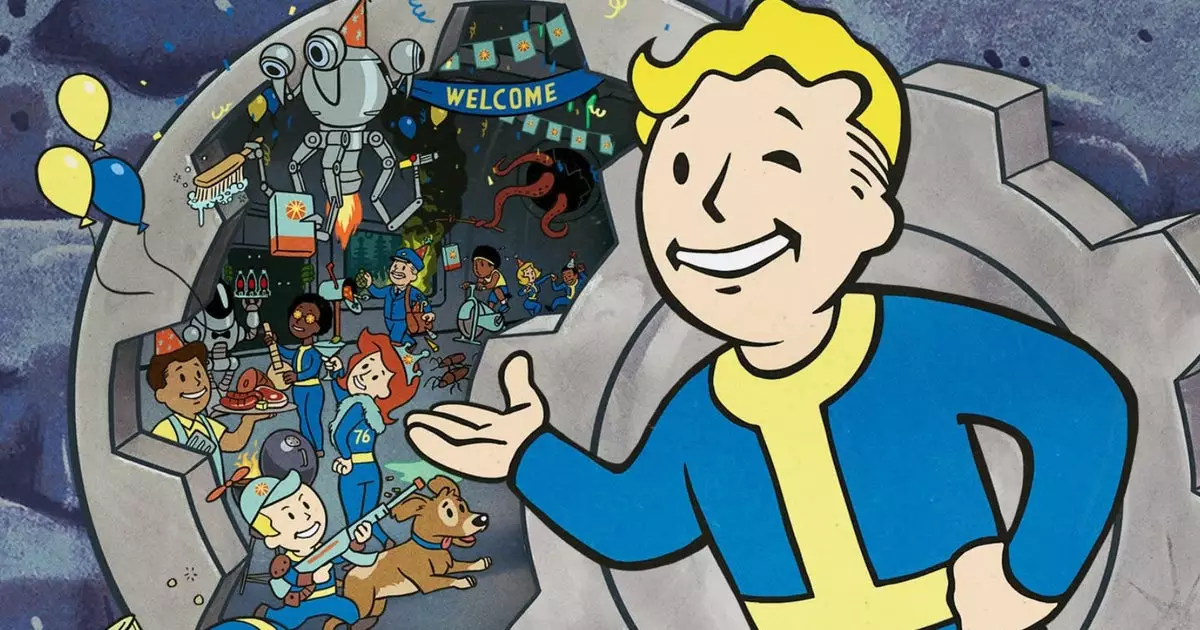In a significant move reflecting growing worker empowerment in the gaming industry, approximately 300 employees at ZeniMax Media have voted decisively for the possibility of a strike. This action comes as the workers, represented by ZeniMax Workers United (ZWU), express dissatisfaction with ongoing negotiations surrounding wages and working conditions with their parent company, Microsoft. Established as part of the Communications Workers of America (CWA), ZWU’s formation marks a pivotal moment in a sector long characterized by labor exploitation and marginalization of workers’ voices.
The urgency of their plight becomes clear when examining the nature of negotiations that have languished for nearly two years. Issues such as remote work options and reliance on outsourced labor for game testing have catalyzed this potential strike, demonstrating the broader conflict between corporate practices and worker rights. Amidst increasing conversations around labor unionization across the tech sector, ZWU’s actions highlight a collective determination to reshape the narrative within game development—one that has often dismissed the indispensable contributions of workers.
Microsoft’s Contradictory Stance
Despite Microsoft’s earlier acknowledgment of the union, it’s apparent that corporate initiatives aimed at appeasing public sentiment—such as the “neutrality” agreement made during its Activision-Blizzard acquisition—do not translate into a genuine commitment to improving working conditions for employees. A closer examination reveals that while Microsoft positions itself as a pro-worker entity, its actions suggest otherwise. Leadership may express verbal support for unions, but their reluctance to meet substantive demands illustrates a systematic approach to minimize costs, prioritizing profit margins over employee welfare.
Statements from ZWU members expose these contradictions starkly. Senior QA Tester Zachary Armstrong articulates the psychological toll on workers facing insufficient wages amid rising living costs, expressing the distress caused by the disconnect between labor contributions and compensation. It is alarming that even within a thriving sector belonging to one of the largest corporations globally, workers still grapple with seeking basic living wages, exposing a troubling narrative of inequality that permeates the gaming industry.
The Stagnation of Negotiations
The ZeniMax Workers United’s recent vote—over 94% in favor of strike action—serves as a poignant reminder that workers are increasingly unwilling to tolerate the inertia of negotiations that fail to yield meaningful progress. As quoted by Associate QA Tester Aubrey Litchfield, the struggle extends beyond mere monetary compensation; it encompasses fundamental demands for employment benefits, job security, and remote work accommodations that many companies now take for granted. The disconnect between the corporation’s wealth and employees’ financial struggles paints a bleak picture of disillusionment, raising critical questions about ethical business practices in a rapidly transforming digital landscape.
Moreover, the anxiety surrounding job security amidst the rise of generative AI tools amplifies these concerns. As Microsoft invests billions into AI technology, the threat of automation looms large over the future of game development jobs, forcing workers to contend not only with their current employment conditions but with an uncertain and potentially unstable future. The stakes have never been higher, indicating that workers at ZeniMax Media, along with their counterparts at other Microsoft subsidiaries, are not just fighting for immediate concerns but rather for the future of their profession.
A Call for Change
The mobilization of ZeniMax Workers United underscores the potential for significant systemic change within the realm of game development. Their proactive stance goes beyond mere dissatisfaction; it signifies a collective aspiration for transformation, emphasizing the need for industry standards that do not exploit labor for profit. The upcoming negotiations and any possible strike action represent an essential turning point that could reshape workplace dynamics within the tech and gaming sectors.
As workers band together and harness their collective bargaining power, their solidarity and resolve may challenge entrenched corporate practices that have long overlooked the value of their labor. This unfolding situation at ZeniMax serves as an inspiring illustration of grassroots activism, demonstrating that the voice of the worker can no longer be sidelined or ignored, and reinforcing the urgency of realizing a new paradigm in the gaming industry—one defined by fairness, equity, and respect for the artistry and dedication that define video game development.

